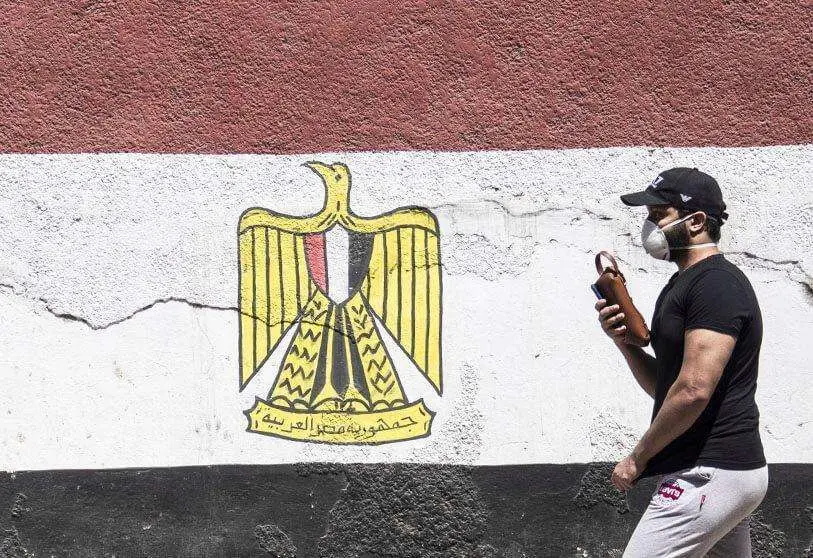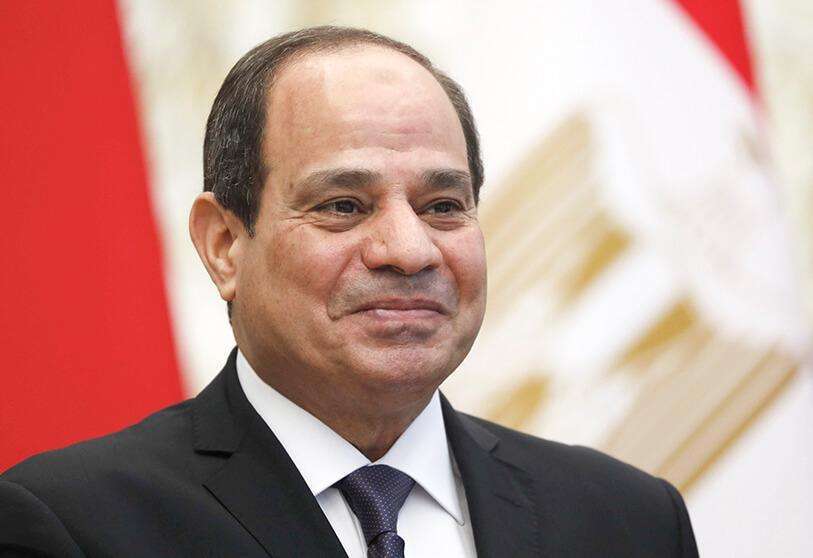Traumas of the Egyptian revolution persist ten years later

This week marked the tenth anniversary of the day that thousands of Egyptians took to the streets against President Hosni Mubarak, sparking a revolt in which nearly a thousand died. Many more were scarred forever, like Ahmed, Said and S.S., who are now forced to hide behind anonymity.
Sitting in a coffee shop in the capital, Ahmed says the revolution was "the purest thing that has ever happened in this country" and remembers it "as if it were yesterday".
The nearly 30-year-old confesses that it makes him "sad" to talk about it and tries to avoid it: "I don't want to open Facebook memories from ten years ago because it would remind me how energetic I was before and how defeated I am now.
Ahmed joined the protests in Cairo's central Tahrir Square on 25 January to call for "a better life for Egyptians". The next day he found himself crammed into a police van with about 40 protesters "turned to shit", kneeling with their hands on their heads.
He was detained for two days in a military facility on the outskirts of the capital with 100 other people, sleeping on the floor of the same cell where there was hardly any light and only a bucket of water that they had to share to relieve themselves.
They were "very scared" and, although they were not tortured physically, "they were tortured psychologically": "A soldier came and shouted the names of the people who could go home... but nobody answered. It was a mind game to give us false hope," he says.
Ahmed was released two days later, released in the early hours of the morning "in the middle of nowhere" but, despite everything, he exchanged fear for courage and rejoined the protests.
A decade later, he cannot get the words of other lower-class protesters out of his mind, who told him that they would be "in the front row to die, because the others had another mission: to educate and make this country a better place".

Said joined the protests on January 29, following the deployment of the army on the streets and the withdrawal of the police, fed up with the poor living conditions in Egypt and especially in his impoverished neighbourhood of Matareya.
"Tahrir Square was everything we wanted Egypt to be. Nobody ever asked you about your religion, your ideology... we were just one more. I felt it was possible to turn the whole country into Tahrir," he recalls.
Said hid from his parents that he was going to protest because of the political differences between them. But they found out when he came home one day with his expensive jacket completely destroyed.
"I went to Tahrir with a leather jacket because they were shooting pellets and they said leather was protective... so I took the only one I had: a Christian Dior one," he recalls with a laugh.
"At that time it didn't matter at all, people were barricading their Mercedes. Absolutely nothing had any value, it was your life that was at stake," he adds.
Said lost a classmate in the demonstrations and, although he knew that participating was dangerous, "it was more dangerous to do nothing at all".
"There came a time when seeing people collapsing dead next to you was completely normal. One shot to the head and that's it. At first I just dealt with it, but when I went home I thought, what the fuck just happened? It was very traumatising," he says.
The young man was "completely ready to die", until he realised that after Mubarak's resignation on February 11, 18 days into the street protests, everything was still the same and "there were many more Egyptians who were against the revolution".
"It was so easy to lose my life there... but I thought my life was too precious to waste it for them (...) who were enjoying their shitty life being humiliated every day", the 30-year-old says angrily.
Said prefers not to remember what happened ten years ago and says he is "very disappointed" in Egypt: "It's good to be here, but it's impossible to live", so his only aspiration is to leave the country "as soon as possible".
S.S. had a successful career in the film industry and was about to get married. Despite having her life on track, she fought for the revolution until she lost absolutely everything.
Now, between laughter and tears, she says she feels "ready" to recall the events of ten years ago after seeing a psychologist to overcome the terror, disappointment and trauma, including the separation from her partner.
The young woman used to prepare food for the protesters camped in Tahrir Square, as well as singing and painting revolutionary murals. However, when demonstrations became more violent in early February, "everything changed".
She began helping out in the field hospitals, where every day she saw the dead and wounded, images she says will never fade from her memory.
"It was escalating... At first people were losing their eyes, like a friend of mine, then people were dying, but the peak (of violence) was when the incidents of (sexual) harassment started," S.S. says.
As the months went by in 2011, she found it harder to go to the square because of harassment against women, allegedly at the hands of people connected to the regime with the intention of distorting the revolutionary movement.
"At that time I came to the conclusion that death is hard, we cry and we mourn... but in the end it was one shot and it was all over. The harassment is disgusting, revolting and painful, and I stopped wanting to go to the square," she says.
S.S. cannot forget what she saw: circles of men surrounding women, tearing their clothes to shreds with knives and abusing them until they were left alone and naked, lying in the middle of Tahrir.
Now she weeps inconsolably at the memory but refuses to think that the revolution was in vain, because "people learned that they can go out" to demand their rights.
"The greatest change is that we used to be afraid and didn't know why, but now we know why we are silent," she concludes.








